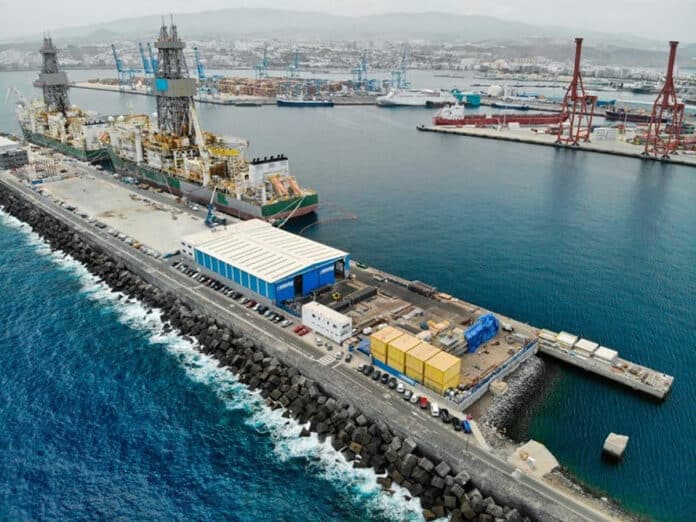This March, the innovative structure that will advance floating Ocean Thermal Energy Conversion (OTEC) technology in severe weather-prone regions begins fabrication. The scaled platform is expected to be installed at a testing site in the Canary Islands, Spain, in the upcoming months.
The structure consists of a cylindric hull, a cold-water riser pipe, and a gimbal connection point. AGRU is fabricating the cold-water riser pipe in Austria, and the cylindric hull, the largest element of the installation, is under construction at Hidramar Shipyard in Gran Canaria. Delivery is scheduled for June.
The fabrication phase of a 1:5 prototype is nearing completion. Once finished, the prototype will be assembled and installed in the Oceanic Platform of the Canary Islands (PLOCAN), where it will endure the conditions of the Atlantic Ocean for around 12 months.
Computer simulations and a scaled tank test in London last year confirmed the functionality of the OTEC structure. The findings of this project will help advance marine engineering design and novel materials, as well as computational modeling, making OTEC technology more accessible and improving the design and materials available for other offshore floating energy and marine devices.
The PLOTEC project aims to contribute to the renewable energy transition in small island developing states (SIDS) that are vulnerable to severe weather conditions. It connects seven companies across Europe, mostly relying on old diesel generators for electricity. They lack clean alternatives for electricity generation that are also adequate for their geographies. These conditions include intense hurricanes, typhoons, harsh storms, and impacts from other climate occurrences such as El Niño.
The full-scale structure was designed to be resilient to tropical storms. It also seems that the structure can be easily disconnected and moved to a safe location during extreme weather conditions. It can be quickly moved back and reconnected to start generating electricity again, as the surface seawater remains warm in that area of the ocean regardless of the climate conditions.
“This prototype will provide us with the perfect opportunity to test our cylindrical hull and gimbal solutions in 20m equivalent waves and hone our offshore connection and disconnection procedure, allowing us to maximize asset lifetime and availability even in storm-prone regions,” highlights Sam Johnston, Lead Engineer at Global OTEC, one of the project’s partners.
Other project partners are Cleantech Engineering Limited (UK), WavEC Offshore Renewables (Portugal), The Oceanic Platform of the Canary Islands PLOCAN (Spain), Quality Culture (Italy), Agru Kunststofftechnik Gesellschaft m.b.H. (Austria) and University of Plymouth School of Engineering, Computing and Mathematics (UK).
